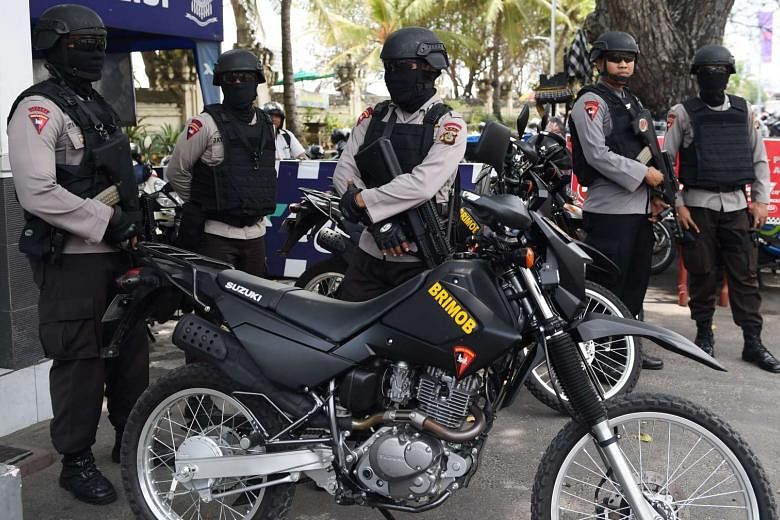The Jemaah Islamiah (JI) has been building a secret armed unit with a growing pool of young militants, raising fears that the terror group is far from being a spent force, said counter-terrorism experts.
Regional security analysts have even coined the term "neo-JI" to describe the new threat emerging from remnants of the group behind the Bali bombings in 2002.
Some also believe that the JI is poised to strike again, having regrouped after being decimated by security agencies following the 2009 attacks on the JW Marriott and Ritz-Carlton hotels in Jakarta.
While the Islamic State in Iraq and Syria (ISIS) has hogged headlines, the danger posed by the JI cannot be ignored, said security expert Bilveer Singh. "It has been in a state of preparation to strike when the moment is ripe."
The JI's lack of action over the last eight years does not mean the group has renounced terrorism, he added. "On the contrary, it had adopted a strategic decision to lie low in line with the concept of I'dad that advocated in-depth preparation to participate in a future jihad."
Mr Wawan Hari Purwanto, an adviser to Indonesia's National Counter-terrorism Agency, said the JI has been expanding in Indonesia in recent years. "It is difficult to arrive at an exact figure because it operates underground," he added. "But it is still as dangerous."
Some estimate that the group may be 2,000-strong, similar to its peak at the turn of the millennium, following the Sept 11 terror attacks in the US in 2001 by Al-Qaeda.
A report by the Institute for Policy Analysis of Conflict (Ipac) on April 27 confirmed that the JI has been building a clandestine armed wing, while conducting recruitment on local university campuses.
The infiltration of radical ideologies on campuses was flagged as a growing threat to national security by Indonesia's Chief Security Minister Wiranto last Thursday. The Higher Education Ministry yesterday announced plans to introduce measures to prevent the spread of radical views on campuses.
While some within the JI have rejected ISIS and the use of violence on Indonesian soil, not all agree with a non-violent doctrine.
Ipac said the arrest of 18 of its operatives since 2014, mostly for firearm offences, and the discovery of a JI weapons factory suggest that the group remains a threat.
Separately, a former JI member, who asked not to be named, told The Sunday Times that the group had hidden weapons caches since its early days and not all have been found by the authorities.
Ipac researchers also believe that younger members given training are likely to be impatient to test their skills.
"The danger is not so much that the current leadership will return to violence," said the Ipac report.
"It is rather that if recruitment continues, a more militant wing may split off, as has happened repeatedly in JI's long history."
Associate Professor Singh said a reason for the group's resurgence was that Al-Qaeda, which continues to inspire the JI, has also been rebuilding in the shadow of ISIS.
"Having weathered various security challenges and with many of its members expected to be released from detention in the coming year or so, JI is poised to play a major role in challenging the security architecture of Indonesia," he added. "That is bound to have serious consequences for South-east Asia."

